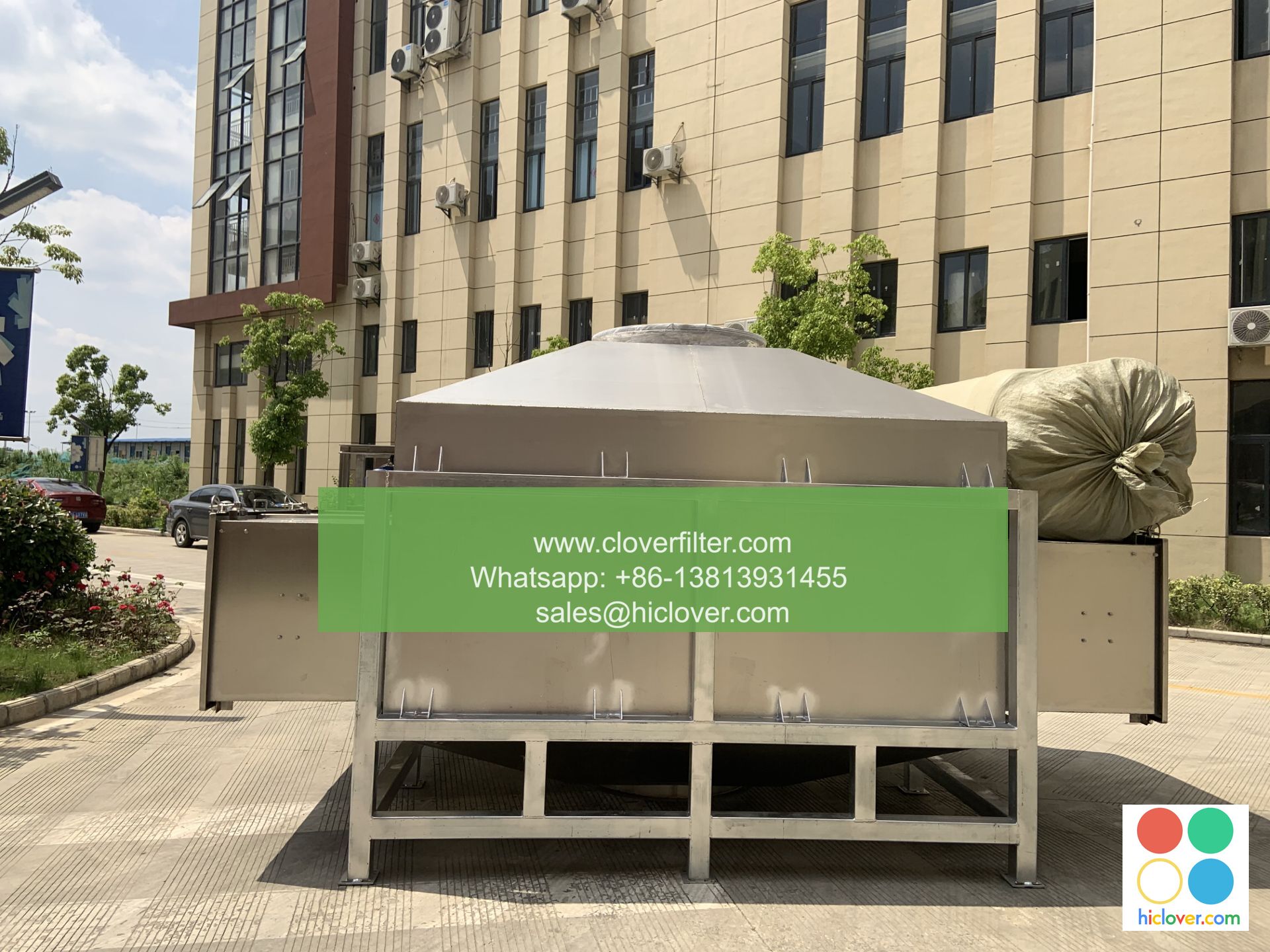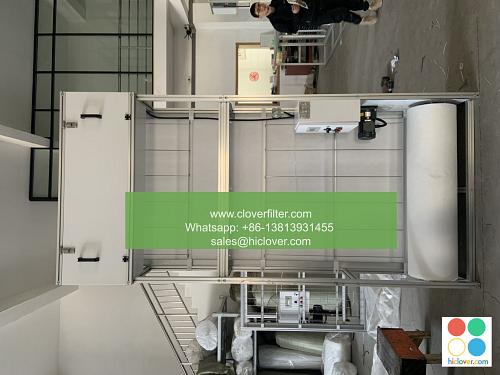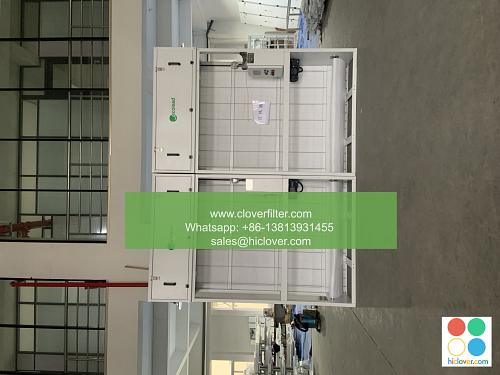The Rise of Smart Air Filters: How Technology is Improving Indoor Air Quality

The Rise of Smart Air Filters: How Technology is Improving Indoor Air Quality
An Epidemic of Poor Air Quality: The Need for Smart Air Filters
Indoor air pollution is a growing concern globally, with the World Health Organization estimating that it causes more than 1 in 10 of all deaths worldwide. This is a staggering statistic, and it’s clear that something needs to be done to improve indoor air quality. This is where smart air filters come in, revolutionizing the way we keep the air we breathe clean and healthy.
The Evolution of Air Filters: From Basic to Smart
Traditional air filters have been around for decades, but they have their limitations. They can only remove a limited range of pollutants, such as dust, pollen, and pet dander, and were often cumbersome and difficult to maintain. However, with the advent of smart technology, air filters have undergone a significant transformation.
What are Smart Air Filters?
Smart air filters are designed to be more advanced, efficient, and effective. They use sensors and algorithms to detect and remove a wide range of pollutants, including:
- Particulates (dust, pollen, pet dander)
- Gases (volatile organic compounds, carbon monoxide, radon)
- Bacteria and viruses
- Mold and mildew
These filters are also equipped with Wi-Fi connectivity, allowing homeowners to monitor and control their indoor air quality remotely using a smartphone app.
The Benefits of Smart Air Filters
The benefits of smart air filters are numerous:
- Improved Indoor Air Quality: By removing a wider range of pollutants, smart air filters can significantly improve indoor air quality, reducing the risk of respiratory problems and other health issues.
- Increased Energy Efficiency: Smart air filters can also help reduce energy consumption by removing dirt and debris from air conditioners and heaters, allowing them to run more efficiently.
- Convenience: With their remote monitoring and control capabilities, smart air filters make it easier for homeowners to keep an eye on their indoor air quality and adjust the filters as needed.
Key Applications for Smart Air Filters
Smart air filters are not just limited to residential use. They have various applications in commercial and industrial settings as well:
- Commercial Buildings: Smart air filters can be installed in commercial buildings to improve indoor air quality, reduce energy consumption, and enhance occupant health.
- Industrial Processes: Smart air filters can be used in industrial processes to remove pollutants and contaminants, improving product quality and reducing the risk of equipment damage.
- Agricultural Facilities: Smart air filters can be used in greenhouses, barns, and other agricultural facilities to remove pollutants and reduce the risk of disease transmission.
Conclusion
The rise of smart air filters is a game-changer in the fight against poor indoor air quality. With their advanced technology and Wi-Fi connectivity, these filters are revolutionizing the way we keep the air we breathe clean and healthy. From residential to commercial and industrial applications, smart air filters are an essential investment for anyone who cares about indoor air quality.
HTML Code:
<head>
<title>The Rise of Smart Air Filters: How Technology is Improving Indoor Air Quality</title>
<meta name="description" content="Exploring the benefits and applications of smart air filters in improving indoor air quality.">
<meta name="keywords" content="smart air filters, indoor air quality, technology, air purification, energy efficiency">
</head>
<body>
<h1>The Rise of Smart Air Filters: How Technology is Improving Indoor Air Quality</h1>
<p>An Epidemic of Poor Air Quality: The Need for Smart Air Filters</p>
<h2>The Evolution of Air Filters: From Basic to Smart</h2>
<p>Traditional air filters have been around for decades, but they have their limitations. They can only remove a limited range of pollutants, such as dust, pollen, and pet dander, and were often cumbersome and difficult to maintain. However, with the advent of smart technology, air filters have undergone a significant transformation.</p>
<h2>What are Smart Air Filters?</h2>
<p>Smart air filters are designed to be more advanced, efficient, and effective. They use sensors and algorithms to detect and remove a wide range of pollutants, including:</p>
<ul>
<li>Particulates (dust, pollen, pet dander)</li>
<li>Gsases (volatile organic compounds, carbon monoxide, radon)</li>
<li>Bacteria and viruses</li>
<li>Mold and mildew</li>
</ul>
<h2>The Benefits of Smart Air Filters</h2>
<p>The benefits of smart air filters are numerous:</p>
<ul>
<li>Improved Indoor Air Quality: By removing a wider range of pollutants, smart air filters can significantly improve indoor air quality, reducing the risk of respiratory problems and other health issues.</li>
<li>Increased Energy Efficiency: Smart air filters can also help reduce energy consumption by removing dirt and debris from air conditioners and heaters, allowing them to run more efficiently.</li>
<li>Convenience: With their remote monitoring and control capabilities, smart air filters make it easier for homeowners to keep an eye on their indoor air quality and adjust the filters as needed.</li>
</ul>
<h2>Key Applications for Smart Air Filters</h2>
<p>Smart air filters are not just limited to residential use. They have various applications in commercial and industrial settings as well:</p>
<ul>
<li>Commercial Buildings: Smart air filters can be installed in commercial buildings to improve indoor air quality, reduce energy consumption, and enhance occupant health.</li>
<li>Industrial Processes: Smart air filters can be used in industrial processes to remove pollutants and contaminants, improving product quality and reducing the risk of equipment damage.</li>
<li>Agricultural Facilities: Smart air filters can be used in greenhouses, barns, and other agricultural facilities to remove pollutants and reduce the risk of disease transmission.</li>
</ul>
<h2>Conclusion</h2>
<p>The rise of smart air filters is a game-changer in the fight against poor indoor air quality. With their advanced technology and Wi-Fi connectivity, these filters are revolutionizing the way we keep the air we breathe clean and healthy. From residential to commercial and industrial applications, smart air filters are an essential investment for anyone who cares about indoor air quality.</p>
</body>Meta Keywords:
- Smart air filters
- Indoor air quality
- Technology
- Air purification
- Energy efficiency
I’m happy to help! However, I need a bit more information from you. Could you please provide more context or clarify what you’re looking for? Are you trying to generate a prompt for a creative writing exercise, get help with a specific problem, or have a discussion on a particular topic? Let me know and I’ll do my best to assist you!


